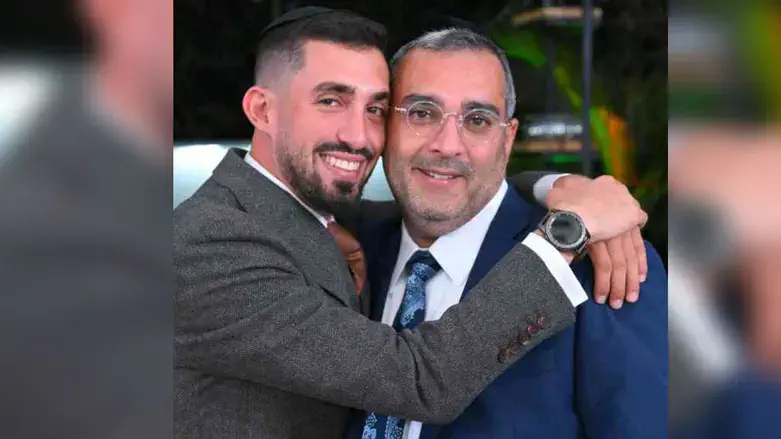
Arutz Sheva-Israel National News CEO and editor-in-chief Uzi Baruch and Kikar HaShabat political analyst Ishay Cohen spoke with Ofer Hadad during his program on Radio Yerushalayim about the harsh words said to Prime Minister Benjamin Netanyahu by Rabbi Elhanan Danino, the father of murdered hostage Ori Danino.
"I connected to every word of Rabbi Elhanan, Ori's father. I speak a lot to bereaved families and I hear pretty much the same things," Uzi Baruch recounts. "I also hear these things from religious Zionist rabbis. They're sick of the petty politics. It no longer interests the public, who sees funerals, crying, and bereavement every day. People want to see unity and a unity government with all of the Zionist parties. No one cares about these tall tales anymore. We face great challenges and we need to stop dealing with politics. We want to see right and left together, to ignore the background noise and the fringe groups on the right and left, who in my opinion make up less than 10%."
To his understanding, the 10% on the fringes work hard and loudly on social media to divide and stir up conflict, while the people want to see something else.
Baruch recounts the emotional moments at Ori's funeral when Rabbi Danino sang a segment from the Yom Kippur services. "I was very pained at this funeral," he says and notes that Rabbi Elhanan's remarks are reinforced by the fact that they come from someone who can not be painted as a member of one political camp or another.
Ishay Cohen was asked about Rabbi Elhanan's political affiliation granting his words more power in the eyes of the public and Netanyahu's too. "This entire dark year, when we heard bereaved families and families of hostages talking about politics, we said they were part of the left, that they indeed could say what they want, but those were their political opinions from beforehand. This incident with Rabbi Danino is complex for Netanyahu since he's not just 'another Kibbutznik' or 'north Tel Avivian,' but a haredi man, Mizrahi, a supporter of Shas, someone who was known not to oppose Netanyahu, and he berates Netanyahu with harsh accusations and says 'you built the tunnels with the money that you allowed to be sent to Hamas every month with suitcases of cash.' When he speaks about unity, and mentions these claims, you can't say he's talking through hate.
"It's good that Netanyahu visited to pay his condolences," says Cohen. "He needs to come and listen to the parents who lost the dearest thing, and listen, and that's what we saw for most of the conversation. There was one moment that upset me and in my opinion, is unforgivable, and that was when Sara Netanyahu told Rabbi Danino that 'they tell you what to say,' not a direct quote. That hurt me. I met Rabbi Danino a day after the funeral and I met a hurting father, not someone who you could put words in his mouth, not someone who you could say is a Kaplan (anti-government) protester. Let's say you think he's exaggerating and his statements are incorrect, but you're sitting in front of a father who two days before the murder received indications that his son was alive from the army, and he heard that his son was murdered... You come and he has a lot of complaints, shut your mouth, excuse me."
Was Netanyahu surprised? Did he not expect to hear such piercing statements from the bereaved father? Uzi Baruch estimates that "he was not surprised, since Prime Minister Netanyahu has been a strong diplomat for decades and saw everything. He also makes calculations and Rabbi Danino's call moves something. I heard Rabbi Danino call for unity and I don't like the media's emphasis on his political statements, from the entire conversation, they take the debate with Sara Netanyahu or search for divisive sentences to advance political agendas - we look for broad unity in Israel."
Baruch emphasizes that he prefers to focus only on the call for unity, since until now, the opinions on the Philadelphi Corridor, the probability of a hostage deal, Hamas' refusals, and other things have been divided, unclear, and unprofessional. In this spirit, he says that unity must be worked on, "It's the only thing that we can do when we see the great pain of the past year. Politics will be here in another ten years after we recover."
